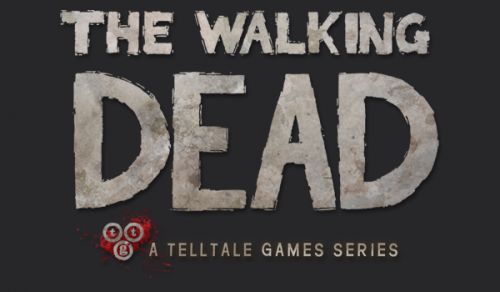Beyond Co-Op Review: The Walking Dead, Episode 1 - A New Day

In the realm of video games, there are those games (broadly speaking) that fall into the category of “games,” and those that fall into the category of “stories through the medium of games.” Telltale Games’ The Walking Dead fits into the latter of those two. Yes, it employs gameplay mechanics that would be familiar to any adventure gamer of the past 10 years, as well as a few “quicktime lite” events, yet those mechanics serve merely to transition you from one story element to another. It is the action that sets up the next plot point or dilemma. As a game, The Walking Dead: Episode 1 has its flaws and detractors, but as a story, it is every bit as compelling as the comics upon which it is based.
Unlike previous Telltale Games, The Walking Dead goes fairly light on the puzzle/adventure aspect of things. Rather than collecting an assortment of items you happen to find scattered about the world, and then using or combining them in a manner that can seem random at times, you’ll only ever have a few objects at a time and these have a very specific purpose that becomes readily apparent at the appropriate moment. This was a most welcome improvement over previous games from Telltale, or even the genre as a whole. Puzzles that serve a purpose in the plot and make sense to what the character is trying to do are one thing; puzzles for the sake of puzzles are another.
While the inventory management/collection/use has been streamlined, being able to detect those items (and other objects with which you can interact) is a bit off. There were a few times where it was obvious that I could interact with something, but moving my mouse over said object yielded nothing. Move the mouse slightly to the side of the object, or above it, however, and it’s a different story. If it was always the case that interactive objects had their “detection” zones a little off the object, then that would be annoying, but at least it would be consistent. As it is, some objects having the detection zone where you expect it to be, and others having it somewhere else, is just frustrating and makes you wonder if it’s a glitch or just poor coding. There is an option to have the game highlight all interactive objects for you, but that feels like a bit of a cop out.

That minor complaint aside, though, the real heart of the game lies in its story. You are placed in the shoes of Lee Everett, a man with a troubled past; a somewhat vague past. He is as blank of a slate as one can hope for in a game like this, and it’s up to you to decide how you wish that slate to be filled. The Walking Dead has some of the most "realistic" feeling (this is a universe where the dead come back to life, afterall) dialogue options/responses I’ve seen in a modern game. Akin to Mass Effect’s conversation system, these options are brief to convey a general idea, and then expanded upon further through Lee's spoken dialogue.
It is through that spoke dialogue that The Walking Dead allows you to interact with the other survivors however you choose and begin to shape the kind of man you want Lee to be. Are you an honest man who is focused on helping everyone out in this time of crisis; or does the world just need to shove off and mind its own business? Maybe you’re the strong silent type, something that’s entirely do-able as nearly every dialogue point in the game includes the option to just say nothing.
Of course, these particular dialogue options don’t impact the overall story arc, they serve more as a means by which you help make the story your own. You could be rather haphazard with your dialogue selections and you’d still arrive at the same preset story-defining choices. A few of these choices are readily apparent, while others sneak their way into the drama that's unfolding before you. Regardless of how obvious the choices may be, they do have a direct impact on the overall story; it may just not be an immediately obvious impact. There are four more episodes set to be released and Telltalle has made the promise that decisions you make now will affect later episodes. The world you’re stepping into, then, is ultimately yours to craft and shape, and the underlying driver beneath it all is the basic need to survive.
In the end, that is what The Walking Dead is about - survival. Zombies are but one plot device that has been used throughout the ages to focus in on a concept that has been debated by countless philosophers, psychologists, and poets: what makes us human? When society is crumbling all around us, will we still cling to our concepts of a “normal society,” or will we make the choices that must be made in order to survive? When forced to decide who lives and who dies, whom will you save? Who should be spared the agony? How will you justify your decision later? Was it, in your mind, the right one to make?
How much of one’s humanity will be lost in order to live another day?
Note: The Walking Dead: Episode 1 - A New Day was reviewed on the PC. The review code was provided by the publisher.
4.5